Company: Apple Inc.
CEO: Tim Cook
Year founded: 1976
Headquarter: Cupertino, California, USA
Employees (FY2023): 161,000
Type: Public
Ticker Symbol: AAPL
Market Cap (Mar, 2024): $2.66 Trillion
Annual Revenue (FY2023): $383.28 Billion
Profit | Net income (FY2023): $96.99 Billion
Products & Services: Computers | Software | Phones | Watches | Tablets | Cloud Technology | Accessories | Music Platform | Cashless payment
Competitors: Microsoft | Lenovo | Google | Samsung | Toshiba | Dell | Sony | HP | Acer | Netflix | Disney | Amazon | Chase | Wells Fargo | Paypal | CitiBank | U. S. Bank | Youtube
Fun Fact
Have you ever heard of Ronald Wayne? He is the third co-founder of Apple, along with Steve Jobs and Steve Wozniak. Just 12 days after creating the company, he sold his 10% shares for a measly $800. Had he not sold his shares, it would have been worth over $250 billion today.
Did you know?
In 2013, one of the original Apple computers was sold for more than $671,400 at German auction.
An Overview of Apple
Apple, Inc. is one of the most successful companies in the world. The company has been providing robust technology products and exceptional software services. Apple is headquartered in Cupertino, California and was founded by Steve Jobs.
Apple launched its first product ‘Apple 1 computer’ in 1976. Since then, Apple has grown exponentially in terms of products and services.
Today, one of the most successful products of Apple is the ‘iPhone’. In the fiscal year 2023, iPhone sales of $200 Billion represent over half (52%) of apple’s overall revenue of $383 Billion.
Tim Cook is the current CEO of the company. Cook is one of the highest-paid CEOs in the world, with an annual compensation of $49 million in 2023.
SWOT analysis of Apple
Here’s a detailed analysis of Apple’s strengths, weaknesses, opportunities, and threats.
Apple’s Strengths
1. Most Valuable Brand
Apple is ranked #1 position for the 10th consecutive year by Interbrand – with a brand value of $502 Billion. Followed by Microsoft ranked at # 2 and Amazon ranked at #3 with a brand value of $316 Billion and $276 Billion respectively.

2. Trusted and Reliable
Apple is one of the most trusted and reliable companies when it comes to personal computers, advanced consumer electronics, application software, and smart technology devices. It has millions of loyal customers, and the number is steadily increasing.
Apple has one of the highest NPS (Net Promoter Score) in the industry. NPS measures customer satisfaction and brand loyalty. Apple’s NPS score is 72, compared to the industry average of 54.
3. Top Technology
Apple was the first to introduce some of the most innovative products that have changed the world (iPhones, iPads, AirPods, Apple Watch, Apple Vision Pro, Mac etc.). Apple is still determined to build and craft better, more proficient technology devices.
4. Brand Of Choice
It isn’t big news that Apple is a favorable brand in corporate offices, especially among creative professionals. Apple offers top-quality technology solutions for every corporation’s needs. Professionals prefer high-performance technology such as Mac Pro or iMacs for visual design, animation, video production, and other creative work.
5. Proficient Research & Development
Apple dedicates itself to its product designs. Careful study and extensive research help it understand customer needs and market trends. Apple continues to invest a substantial portion of its revenue in research and development to ensure future growth and a competitive edge. For example, in fiscal year 2023, Apple spent $29.92 Billion (about 8%) of its revenue on R&D.
6. Sustainability made Possible through Daisy
Daisy is an iPhone recycling robot that breaks down and disassembles iPhones. It strips them down to a single bolt, and most parts of an iPhone can be reused.
Daisy is designed to recover as many reusable parts as possible. These reusable parts are then categorized and safely stored so they can be used for new manufacturing. Daisy has helped Apple move closer to its goal of using recycled or renewable materials for its products.
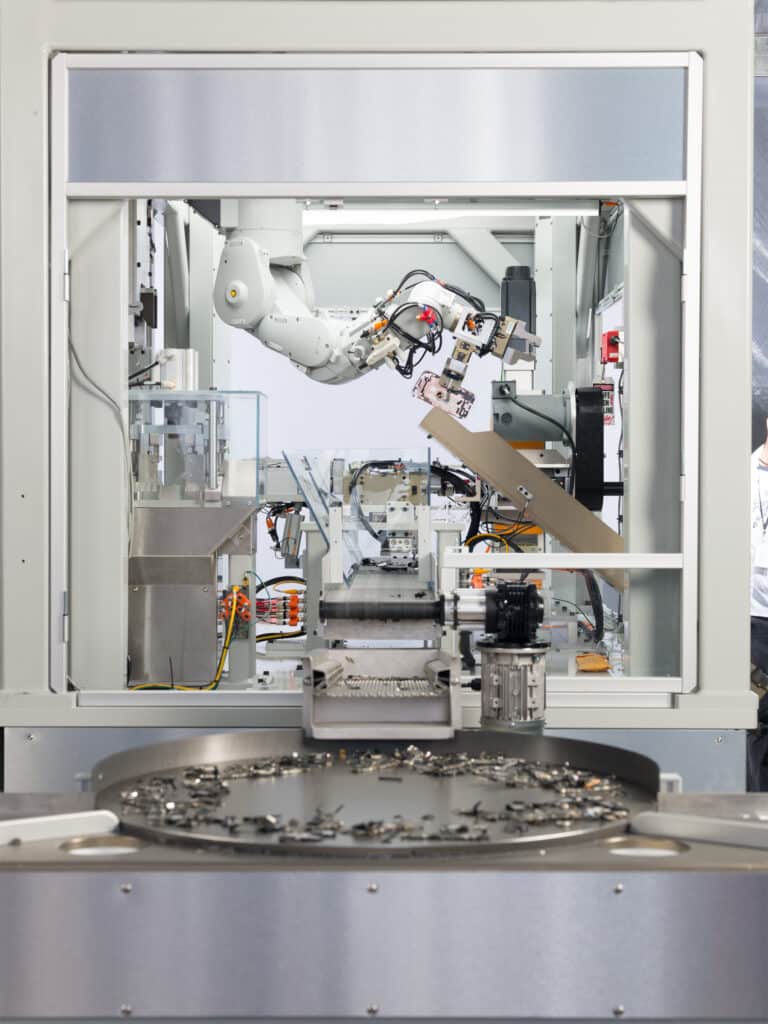
7. Expansion in services
Apple has been expanding its services portfolio for many years. For example, about 22.3% of Apple’s annual revenue ($85.2 B out of $383.2 B in FY 23) came from its services, which is the second biggest contributor to its revenue after the iPhone (52% of its revenue).
Apple’s services include digital content stores, streaming services, iCloud, AppleCare, and payment services etc. Recently, Apple has introduced many new services, such as Apple TV+ , Apple news+ , Apple Card (credit card services), Apple Arcade (game subscription), and Apple Fitness+ etc.
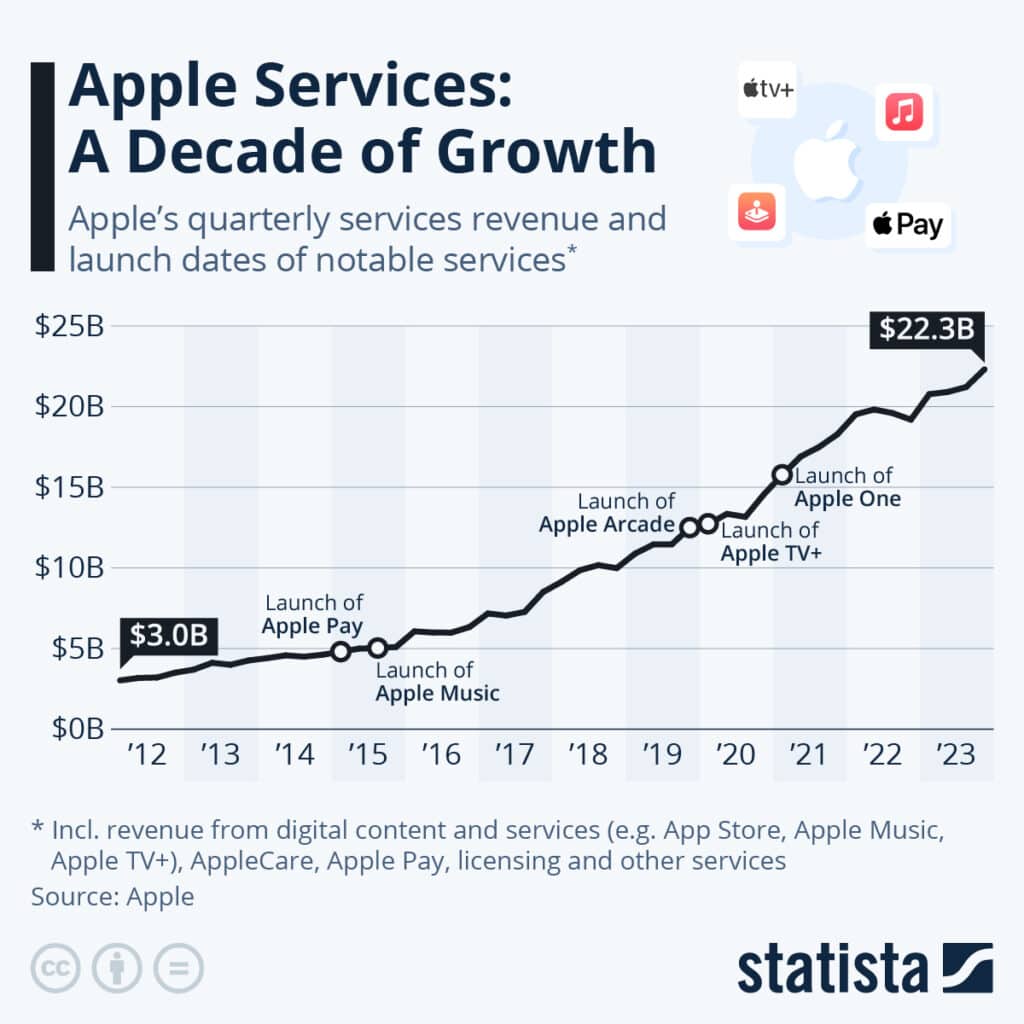
8. Highly Profitable
Apple is a highly profitable company and has consistently generated net income close to $100 billion in the last three years. Net income for the previous three fiscal years is as follows:
- In FY23 – $96.99 billion
- In FY22 – $99.8 billion
- In FY21 – $94.68 billion
According to Statista, Apple generated $3074 of net income per second in fiscal year 2023.
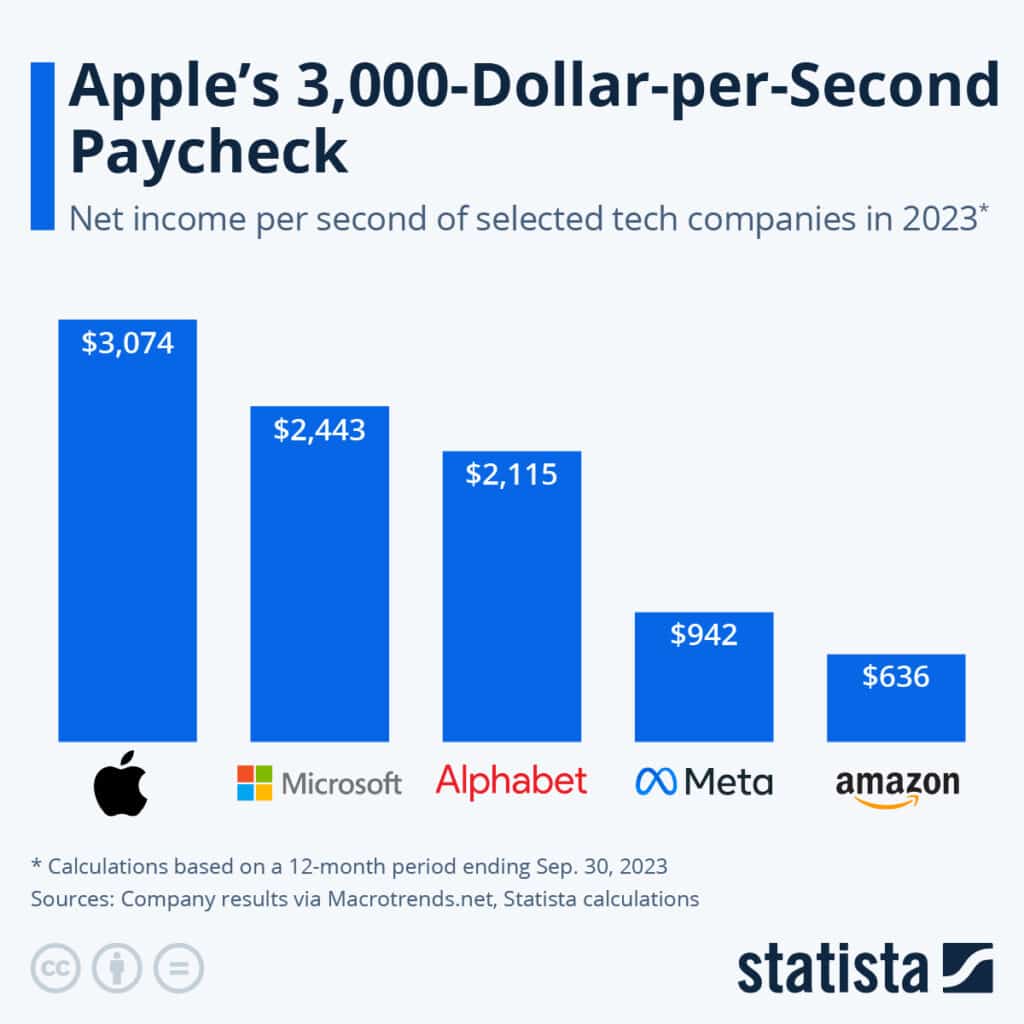
9. Apple Snatches the Top Spot
Apple’s iPhone just defeated Samsung as the top-selling smartphone in 2023.
IDC estimates that Apple shipped 234.6 million iPhones (20.1% of global market share), whereas Samsung slipped to second place with 226.6 million shipments (19.4% market share).
This marks the first time Samsung has lost the top spot since 2010. Apple’s year-round dominance suggests it’s weathering the industry slump better than its rivals.
10. Apple Ecosystem – An Economic Moat
Apple’s tightly integrated hardware, software, and services ecosystem has solidified its position as a leader in the consumer electronics industry.
Its seamless integration of devices and services, unified and enhanced user experience, network effect, pricing power, and switching cost create an incredible economic moat for the company. It provides a long-term, sustainable competitive advantage for Apple in the tech industry.
Apple’s Weaknesses
1. High Priced Products
Apple’s products can be considered a luxury due to their premium prices. The products are priced for middle and high-income consumers. Low-Income consumers can’t simply afford Apple products.
Due to their premium pricing, only middle or high-earning individuals can afford their products.
2. Limited Advertisement & Promotions
Apple has solidified their grounds by establishing loyal customers, even with limited advertising resources. Apple marketing relies heavily on its iconic and flagship retail stores.
Because of their success, Apple does not feel the need to have excessive spending towards advertisement in comparison to other big brands such as P&G, Pepsi, Verizon, and Coca Cola etc.
However, a continuous decline in retail store or shopping mall foot traffic poses a real challenge for Apple’s brand exposure and product engagement.
3. Entering into Area of Non-Competency
Apple is rapidly expanding into new services such as video content streaming, game streaming, payment services (credit cards) – competing with the dominant players such as Netflix, Disney, Paypal, Wells Fargo, Citi, Chase, etc.
They might be entering into areas in which they lack competencies; remember the failure of Apple maps.
4. Incompatibility with Other Software
When a customer buys an Apple product, they enter the Apple universe—an ecosystem of hardware, software, and services. Apple’s products do not support other software or technologies, making them incompatible with other devices.
Customers have to purchase Apple apps or accessories exclusively to continue using Apple products.
5. Allegations of Tracking
Tracking users undermines trust. Apple has been accused of using tracking apps in its phones, which reveal users’ precise locations.
Even though the latest version of Apple’s iPhones gives users the right to decline the tracking, trust is difficult to regain once it is lost.
6. Unfair Business Practices
Apple is under investigation for unfair business practices after receiving payments to make Google’s search engine as the default search engine for its Safari web browser. Collusion between the two giants makes it difficult for rivals to enter and expand into the search engine market.
7. Integrate Stronger Parental Control Software
Parents allege that Apple’s parental control software isn’t good enough. And that’s true because popular apps such as Instagram, YouTube, TikTok, etc., are integrated with independent control systems, which make it a technological nightmare to monitor and track children’s social media activity.
Although Apple and Google have both boasted that their parental control is the best, kids easily find numerous ways to bypass those controls.
8. Over Dependence on iPhone
Apple generates more than half its revenue (52%) from iPhone sales. However, relying heavily on a single product line exposes the company to market fluctuations and changing customer preferences. Diversification is crucial to mitigate this risk and long-term success.
Apple’s Opportunities
1. Consistent Customer Growth
Apple has been dominating the technology sector for years now. They provide top quality and cutting-edge technology that offers a breakthrough in customer experience.
Their customer retention rate of 92% is phenomenal. Apple can always rely on the power of the internet for future opportunities to gain new customers and form new alliances.
2. Qualified Professionals
Apple’s researchers, developers, and product specialists are a team of highly qualified professionals that have years of experience in branding consumer products. With the expansion of their team, Apple can continuously build new opportunities.
3. Expansive Distribution Network
Apple Inc. has the opportunity to expand its distribution network. Currently, the distribution network that Apple has is very limited and leaves room for minimal growth.
Apple can generate higher revenue and sales if it focused on creating an expansive distribution network. Furthermore, the company can benefit from diligent marketing and promotions.
4. Lack of Green Technology
Apple is yet to launch products that are created using green technology. The company has not yet implemented or participated in creating sustainable technology that is eco-friendly.
5. Smart Wearable Technology
Smart wearable technology is dominating the world. According to Mordor Intelligence, smart wearable technology devices market size will grow from $84 billion (in 2024) to $205 billion by 2029. With a CAGR of 19.48% during the forecast period (2024-2029).
Apple needs to grow beyond just the Apple Watch, AirPods, Vision Pro into other wearable categories to leverage such opportunities in this growing market segment.
6. Utilize Artificial intelligence
To increase its profit margins and have a strong market position, Apple should utilize artificial intelligence. Recently, the company has extended its AI portfolio.
In the year 2017, Apple acquired Regaind, a French AI startup and DeskConnect, an AI tool. The former acquisition helps Apple to integrate intelligent search to the photos app on the iPhone, while the latter acquisition automates tasks by helping the consumers to arrange apps and features with a string of commands.
The company should focus on extending its AI portfolio to have a strong foothold in the future.
7. Expand Music Streaming Services
The youthful population and rapid economic growth in emerging economies offer immense opportunities for expansion. Apple is already planning to expand its music streaming services to 52 emerging markets in Africa and the Middle East.
8. Deliver Self-Driving Software Technology
The demand for autonomous is increasing rapidly. Apple has the expertise needed to deliver self-driving car technology rather than fully-functional autonomous or electric cars.
Apple has the opportunity to focus on delivering self-driving software technology instead of building an actual car like Tesla does.
On a Bloomberg interview, Apple CEO Tim Cook says:
” We are focusing on autonomous systems. And clearly, one purpose of autonomous systems is self-driving cars. There are others. And we start to see it as a mother of all A.I. projects. It’s probably one of the most difficult A.I. projects actually to work on.”
9. Kia Motors to build Apple’s driverless car
Apple has partnered with Kia Motors (parent company – Hyundai) to assemble driverless electric cars in Georgia. According to the Wall Street Journal, Kia will begin production by 2024 and produce about 100,000 vehicles in the first year.
10. Expanding into Chip Manufacturing
Apple announced that it’s going to start manufacturing its own chips and semi-conductors going forward, competing with Intel and Broadcom etc. The tech giant is already on-boarding engineers for a new South California location.
Apple’s continually expanding silicone team to make next-gen wireless silicone. The company’s chip manufacturing maneuver boosted its total market value, propelling it close to $3 trillion.
11. Dominating in Smart Speakers
Apple is dominating the market for smart speakers. The tech giant’s HomePod mini has been a massive success. According a report by Strategy Analytics, Apple now has a 12.7% market share after selling 4.5 million smart speakers.
12. Fitness Feature in Apple Watch
While the Apple Watch’s activity rings are a neat feature that allows you to monitor your exercise routine and frequency, users say that it’s time Apple incorporates a readiness score feature like the Oura and Fitbit.
One of the best benefits of a readiness score is that it helps prioritize when to rest and recover. While Fitbit and Oura have had this feature for a long time, Apple is yet to incorporate a feature like this, and users can only access this feature via third-party apps such as AutoSleep.
13. Buy Now, Pay Later Service
Apple introduced a new service called “Apple Pay Later” in the US, enabling customers to buy and pay for products over time. With this new service, users can split their purchases into four payments spanning six weeks without additional charges or interest fees.
Moreover, they can quickly and conveniently repay their loans through Apple Wallet. Users can apply for loans ranging from $50 to $1,000 and use them for in-app and online purchases made through iPad and iPhone devices from merchants who accept payments via Apple Pay.
More than 85% of American retailers currently accept Apple Pay – a figure likely to increase. However, the service is only available to a select group of users, with plans to roll it out more widely.
14. Expansion in Indian Market
Tim Cook (Apple CEO) says he is “very bullish on India.“
Since Covid, Apple has seen substantial revenue growth in India because a record number of people are switching from android to iOS devices.
Apple’s iPhone has gained a significant 6.5% market share (by volume) in the Android-dominated Indian market, strategically positioning the tech giant for unprecedented growth.
To further increase its growth and market share in India:
- Apple has established its retail store (Mumbai and Delhi) and expanded its online presence.
- Apple is figuring out trade-ins and other financial options to make its product more accessible to Indian consumers.
- Apple has adopted Equated Monthly Installment (EMI) and No Cost EMI in India, which helps consumers purchase premium-priced products in installments.
Apple’s Threats
1. Antitrust threat: Apple Under Scrutiny
Apple is facing antitrust accusations that could lead to legal trouble and damage its reputation. The U.S. Department of Justice is investigating the restrictions in software and hardware for iPads and iPhones, which they claim limit fair competition. Furthermore, the European Union has already fined Apple €1.8 billion ($1.95 billion) for illegal music streaming practices.
While Apple tries to maintain control of its system, it also needs to ensure fair competition in the market. This is a tricky situation that may force Apple to change its business practices.
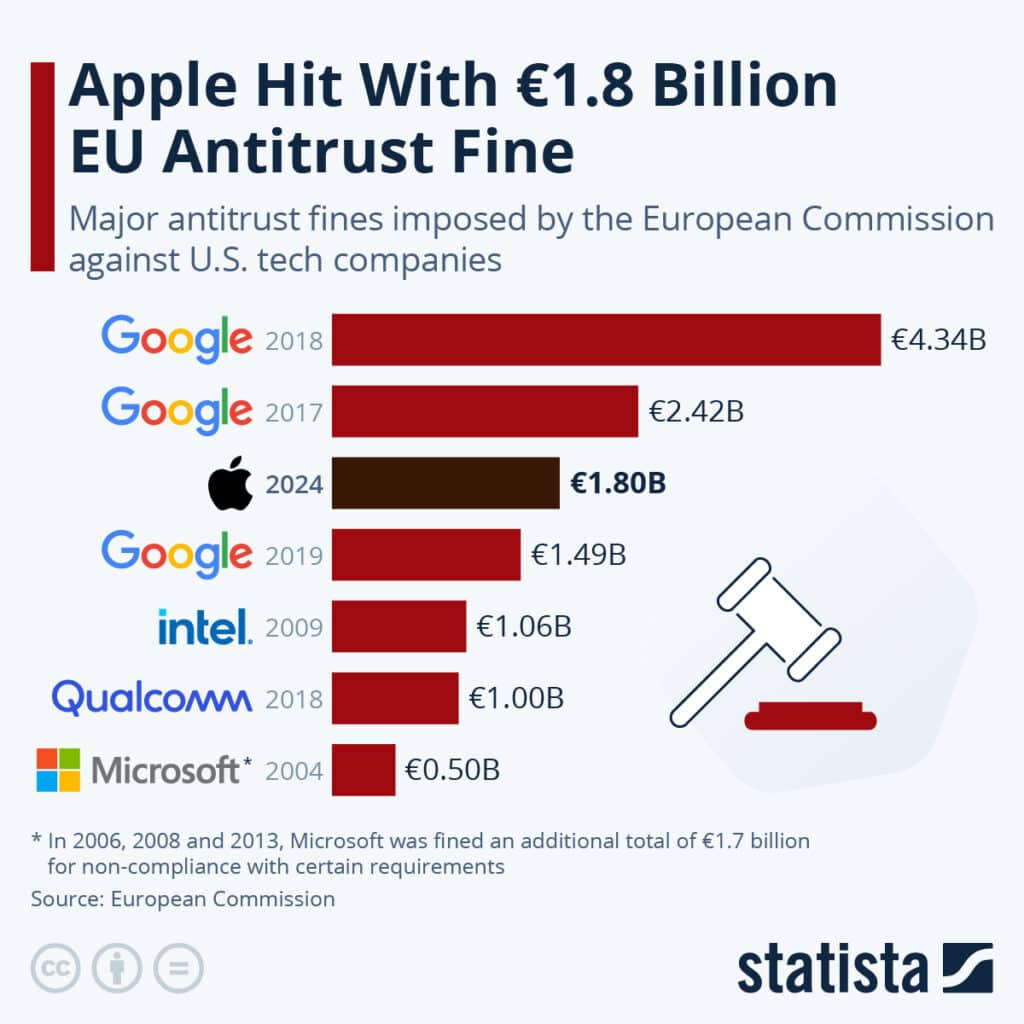
2. No Effective Countermeasure for Air Tags
While Apple’s AirTags are meant to help people find frequently misplaced items using Bluetooth, the technology is also being used with malicious intent. There have been a lot of instances where criminals have used AirTags to steal cars and, worst, stalk people.
Apple commented that the Find My app will immediately let users know if an unknown accessory is tracking them. However, there is yet to be a more permanent solution.
Apple’s attempt to curb abuse inadvertently results in continuous location broadcasting within a 30-50 foot radius. This compromise between abuse prevention and user privacy highlights Apple’s recent AirTag system update challenges.
3. Apple Bullied By Counterfeits
Apple has become vulnerable to third world countries illegally utilizing the brand image to sell counterfeit products. The illegal dealers sell Apple counterfeit products at the same value as an original Apple product.
Counterfeit products can make potential customers believe that it is a product made by Apple with low quality. big news can result in negative reviews and bad publicity for the company.
4. Increasing Competition
Although Apple as a brand has solidified itself, it still faces threats from competitors. With the advancement in technology, brands like Samsung, Google, and Dell are giving Apple tough competition.
As the competition is getting stronger, Apple either has to introduce new technologies or revise its pricing policy to stay ahead of its competition.
5. Market Penetration
There has been a significant change in market penetration by other brands in the smartphone market. Companies like Samsung, HTC, and Lenovo are using Android software to create new smartphones.
Currently, Android has captured 70.24% of the market share, while Apple has only 29.04% of the market share globally.
6. China Tariffs
US government has imposed a higher tariff on imports from China, increasing the overall cost of the products. Consequently, it adversely affects the gross margin on the products and may make the product more expensive for customers.
7. Lawsuits
60 class-action lawsuits have been filed against Apple. Consumers were upset and baffled when Apple announced that it deliberately throttles CPU performance on iPhone models with older and degraded batteries.
The tech giant said that it did so to prevent unexpected shutdowns. Despite the clarification, consumers felt betrayed because they that Apple does not believe in transparency. This led to a number of people filing lawsuits against the company.
The first class-action lawsuit was filed on December 21st, 2017 and alleged that Apple’s actions not only negatively affect the resale value of their products but also forces its users to upgrade to newer versions prematurely.
8. Backdoor Mechanism
Apple has been under constant pressure by government agencies to unlock the iPhone via a backdoor, which means unlocking the encryption of the iPhone and giving access to its data.
In several instances, Apple has denied providing the backdoor mechanism because it can be exploited by the bad guys, which eventually exposes the security of millions of iPhone users.
9. Mark Zuckerberg Criticized Monopoly of iPhone’s App Store
In a recent webcast, Mark Zuckerberg, Facebook’s CEO, criticized Apple for its monopoly on App Store and hefty charges.
Mark Zuckerberg states that:
iPhone App Store ” blocks innovation, blocks competition,” and “allows Apple to charge monopoly rents.”
Apple charges a 30% cut for in-app purchases through its app-store. The company is often criticized because a 30% cut is a significant commission for small businesses or app developers.
10. Apple Motions for Case Dismissal
The CCI (Competition Commission of India) recently alleged that Apple is eyeing for a complete monopoly, dominating with its app development in the country. The CCI filed the complaint after going through numerous allegations, stating that Apple is compelling developers to use its proprietary system, wiping out existing competitors.
However, Apple responded by stating that the allegations are completely baseless because they have a relatively smaller market share compared to Google, which clearly dominates the Indian tech market. Apple has moved to have the case dismissed.
11. Common USB-C Charger Law in European Union.
European Union has passed a new law that requires all electronic devices (phones and tablets) to have USB-C chargers by the end of 2024. However, Apple uses lightning chargers (a proprietary technology) in all its iPhone devices. The company will have to comply with the mandate to sell its products in the European Union.
The new law will reduce production and disposal as consumers will not have to buy different chargers for different devices.
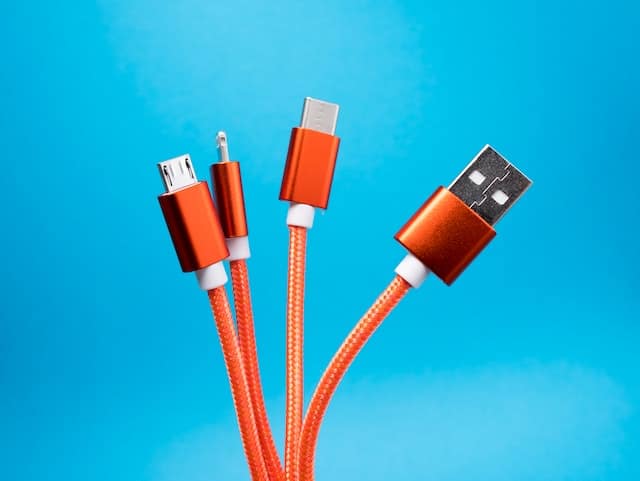
12. General Motors Will Phase Out Apple CarPlay On Upcoming EVs
As part of its plan to completely phase out gas-powered vehicles by 2035, General Motors has announced it will no longer include Apple CarPlay and Android Auto in its future electric cars, starting with the 2024 Chevrolet Blazer.
CarPlay and Android Auto allow drivers to access their phone’s features on their car’s dashboard screens, but GM intends to replace them with its own Google-based software.
According to Reuters, this new firmware will come with Google Maps, Google Assistant, and other popular apps like Spotify and Audible. While CarPlay and Android Auto will be removed from electric vehicles, they will remain available in gas-powered cars.
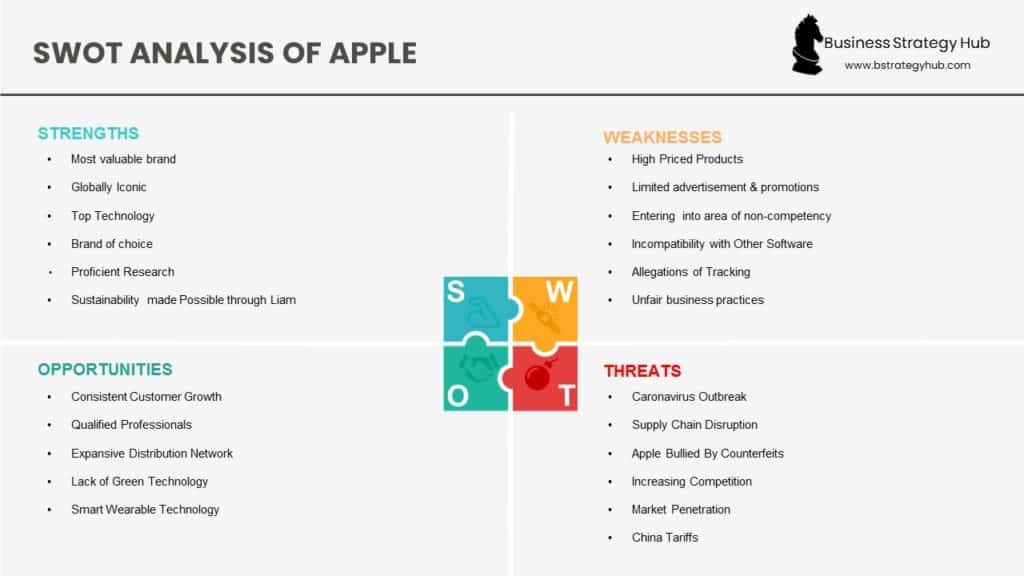
Final Thoughts
Through this Apple SWOT Analysis report, one can learn the exclusive details of Apple. This SWOT report is ideal for case studies. This report closely examines Apple’s strengths, weaknesses, opportunities, and threats.
References & more information
- Apple annual filings
- Interbrand
- NPS score – Survey Sparrow
- IDC Smartphone Marketshare Tracker
- Smart wearable market size and share analysis – Mordor Intelligence
- Apple tops Indian Smartphone Market – The Economics Times
- Market share of mobile operating systems worldwide – Statista
Tell us what you think? Did you find this article interesting? Share your thoughts and experiences in the comments section below.





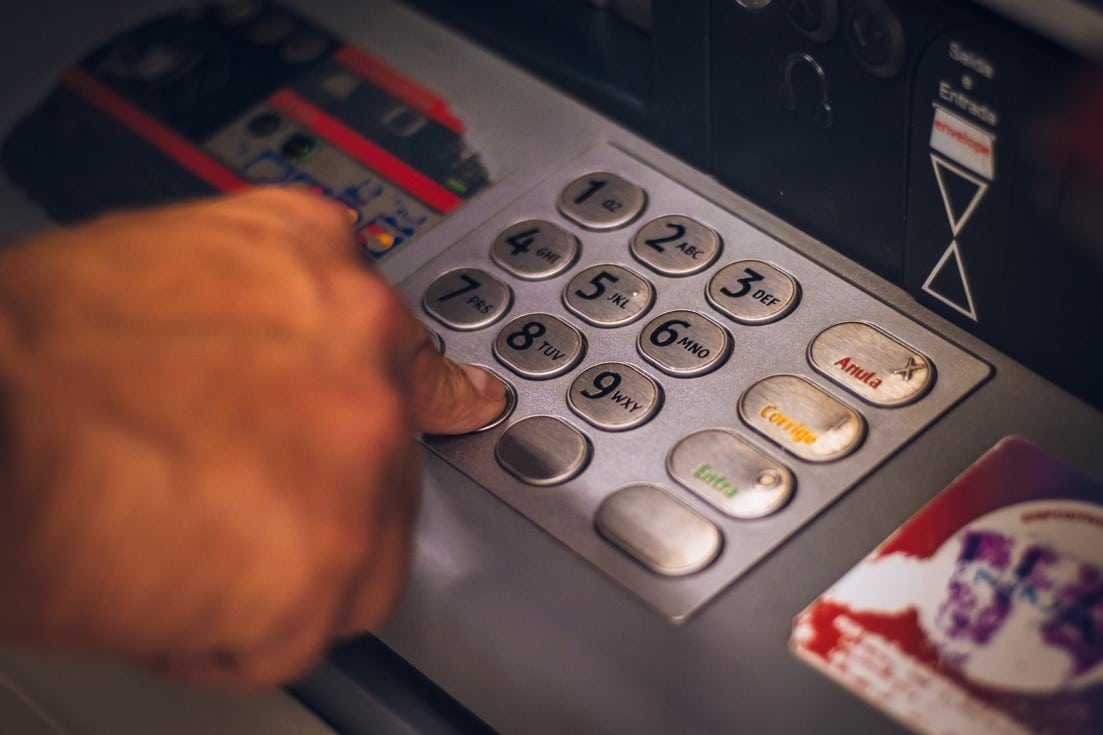


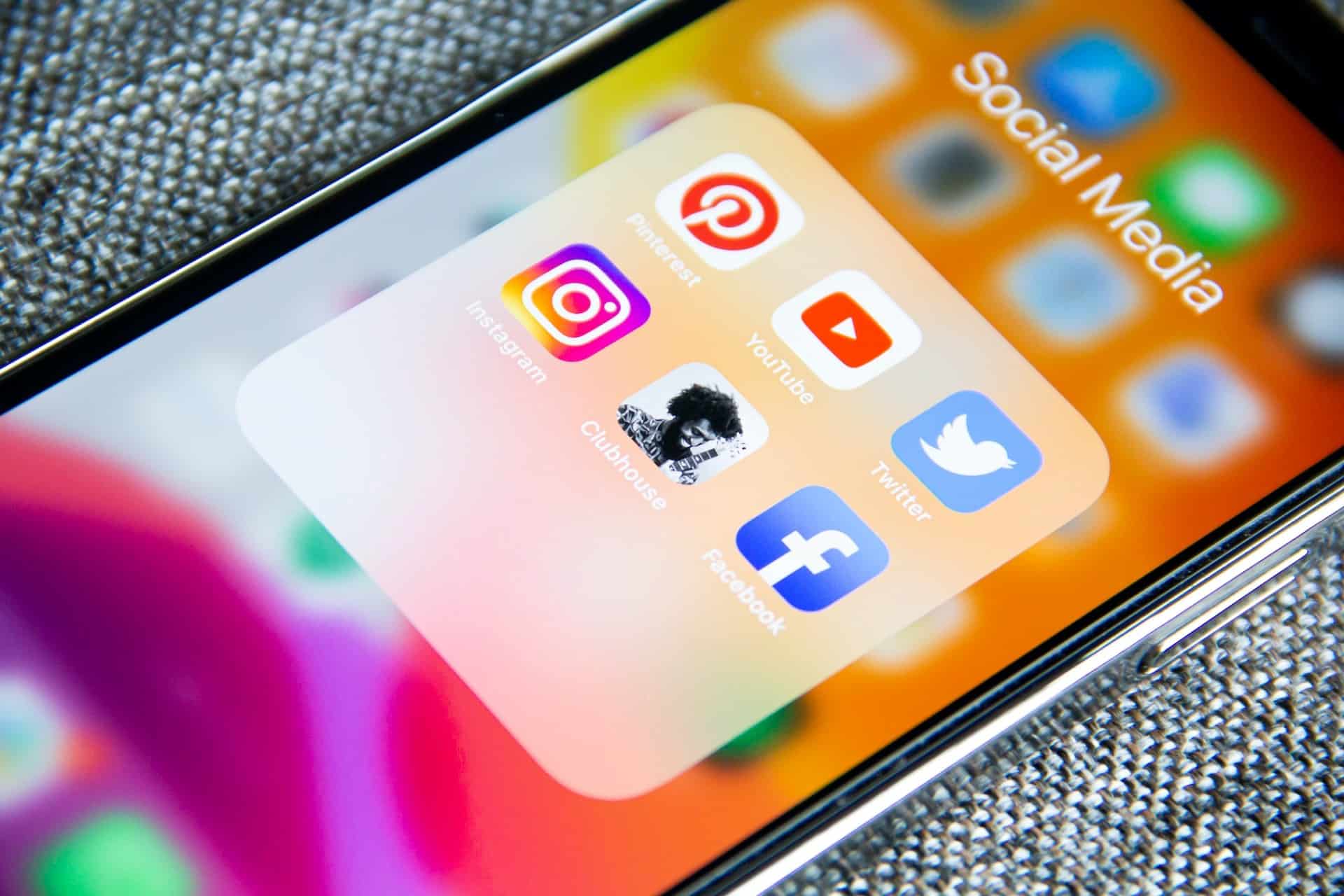




thank you so much for your hard work man <3
no problem
did you make this
yes x
bless your soul
its great, Keep posting for other giant companies. Thank you so much for the hard work :-).
Thanks Ribana for the kind words !
I am glad you liked it.
Wouldn’t you say Apple has taken the opportunity in “smart wearables”? ie Apple Watch
Good point Carl !
Apple continues to grow its wearable category i.e., Apple Watch, AirPods, etc.
Smart wearable is still a very new category, there are a lot of opportunities to explore and grow here.
There could be many new form factors, for example, smart ring, smart headgear, smart shoe, smart glasses with a possible application in healthcare, gaming, etc. We are just scratching the surface….
highly appreciate the time you have put into this thanks man. : )
You are welcome!
Glad you liked the analysis.
Thank you very much for this analysis SG!
🙂
thanks… nice study outcome.. tq for the article..
Currently doing an assignment on iPhone and cried profusely because of a mental breakdown. Thank you for this, I now have hope !
Thank you!! Made my research fun and easy!
Glad you liked the analysis 🙂
Very informative and factual. A good source for reference! Thank you!
Thank you!
Can you share your references, please?
Hi Diavoletta,
You can use below reference:
Gupta, S. K. Apple SWOT 2022 | SWOT Analysis of Apple.
Business Strategy Hub
Hope this helps
Happy Reading!
Very comprehensive. Thank you!
Thanks Mina!